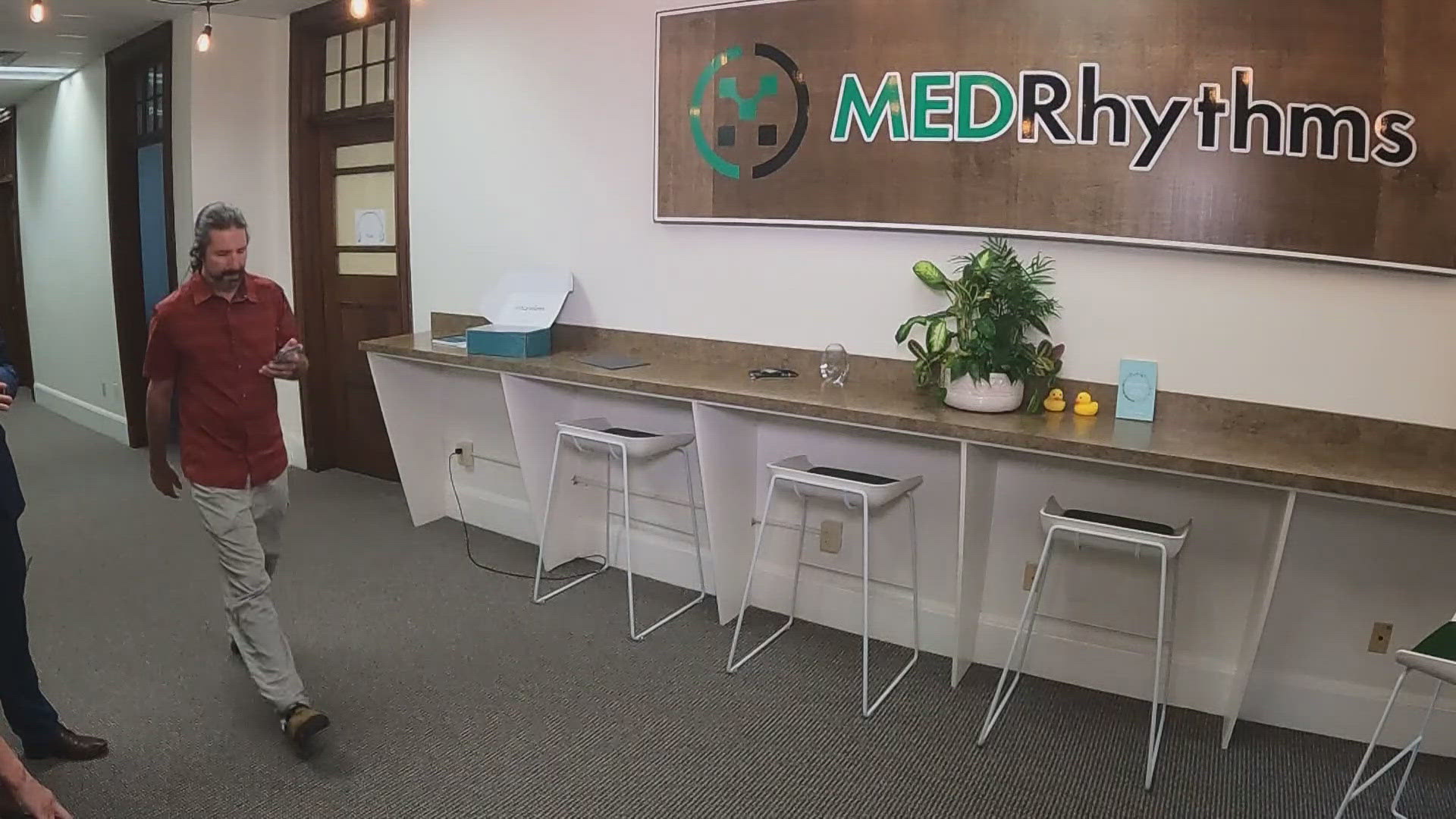PORTLAND, Maine — Most of us have probably heard the saying that music has the power to heal.
That's the focus of a new digital therapy helping stroke patients in Maine and across the country regain their ability to walk.
MedRhythms, which is based in Portland, created a system that uses sensors, software, and recorded music. It is now available by prescription for patients to use in the comfort of their homes.
After winning FDA approval, the company's device that uses music and rhythm to improve a patient's walking hit the market earlier this year.
"It's being prescribed by doctors, used by stroke survivors in their homes, and paid for by insurance," Owen McCarthy, president and founder of the medical startup, said.
McCarthy and CEO and Founder Brian Harris launched the company eight years ago. Its neurorehabilitation system, "InTandem," could be a game changer for millions of stroke survivors in the US and Maine.
InTandem has a clinical trial that says it can improve walking speed and quality, McCarthy explained.
The system is delivered to a patient's home. It includes shoe sensors, a headset, and a touchscreen device preloaded with software. Patients attach sensors to their shoes, don a headset, and pick from a music playlist. The device uses recordings from Universal Music Group's extensive catalog.
The sensors measure the patient's gait and cadence, which adjusts the music's tempo. The change in tempo triggers a response in the brain that helps the patient walk faster and more easily. Eventually, the brain can be rewired to facilitate better walking, even without music.
'Every time he uses it, he gets better'
Jay Burdett suffered a debilitating stroke eight years ago. After weeks of rehab, doctors told his wife Kristen, her husband would have to rely on a wheelchair to get around.
Using a cane, Jay started using InTandem three times a week, 30 minutes a day last fall, a regimen that MedRhythms recommends. Now, the grandfather can walk a mile around his family's camp with a smile.
"Every time he uses it, he gets better," Kristen added.
"You go to the beat, boom, boom, boom, boom," Jay said.
Innovation developed in Maine is creating real hope for survivors and their families as they regain skills and improve their daily lives.
"When he wears that, he really can go quickly. It's amazing. It's beginning to transfer into his everyday walking," Kristen explained.
The monthly fee to rent the device is $1,800. Out-of-pocket costs will vary based on insurance, but MedRhythms is working with patients and their doctors to ensure the InTandem system is accessible.
McCarthy said there is a possibility the device could be adapted in the future for patients with other neurological problems, including Parkinson's disease.

